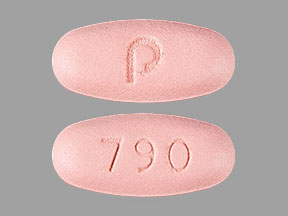
Tribenzor Coupons & Savings Card – Discount Prices from $36.65
Brand for: Olmesartan-amlodipine-hydrochlorothiazide
My prescription
Edit
40-10-25MG, Olmesartan-amlodipine-hydrochlorothiazide (30 Tablets)
Select pharmacy

CVS
$36.65
COUPON PRICE
Walmart
$45.10
COUPON PRICE
Albertsons
$50.01
COUPON PRICE
Walgreens
$50.10
COUPON PRICETribenzor savings card
Show this card to your pharmacist
CVS
$36.65
BIN
ID
PCN
GRP
019876
LH399BE68D
CHIPPO
LHX
Powered by
More prescriptions for hypertension
More prescriptions for hypertension
Tribenzor (Olmesartan-amlodipine-hydrochlorothiazide) dosage forms
Dosage Quantity Price from Per unit 20-5-12.5MG 10 Tablets $15.42 $1.54 20-5-12.5MG 30 Tablets $36.65 $1.22 20-5-12.5MG 60 Tablets $55.00 $0.92 20-5-12.5MG 90 Tablets $81.34 $0.90 20-5-12.5MG 180 Tablets $136.39 $0.76 40-10-25MG 30 Tablets $36.65 $1.22 40-5-25MG 7 Tablets $12.58 $1.80 40-5-25MG 15 Tablets $24.11 $1.61 40-5-25MG 30 Tablets $36.65 $1.22 40-5-25MG 60 Tablets $55.00 $0.92
| Dosage | Quantity | Price from | Per unit |
|---|---|---|---|
| 20-5-12.5MG | 10 Tablets | $15.42 | $1.54 |
| 20-5-12.5MG | 30 Tablets | $36.65 | $1.22 |
| 20-5-12.5MG | 60 Tablets | $55.00 | $0.92 |
| 20-5-12.5MG | 90 Tablets | $81.34 | $0.90 |
| 20-5-12.5MG | 180 Tablets | $136.39 | $0.76 |
| 40-10-25MG | 30 Tablets | $36.65 | $1.22 |
| 40-5-25MG | 7 Tablets | $12.58 | $1.80 |
| 40-5-25MG | 15 Tablets | $24.11 | $1.61 |
| 40-5-25MG | 30 Tablets | $36.65 | $1.22 |
| 40-5-25MG | 60 Tablets | $55.00 | $0.92 |
| 40-5-25MG | 90 Tablets | $81.34 | $0.90 |
| 40-10-25MG | 10 Tablets | $16.70 | $1.67 |
| 40-10-25MG | 15 Tablets | $23.80 | $1.59 |
| 40-10-25MG | 60 Tablets | $55.00 | $0.92 |
| 40-10-25MG | 90 Tablets | $81.34 | $0.90 |
| 40-5-12.5MG | 5 Tablets | $9.98 | $2.00 |
| 40-5-12.5MG | 7 Tablets | $12.98 | $1.85 |
| 40-5-12.5MG | 30 Tablets | $36.65 | $1.22 |
| 40-5-12.5MG | 60 Tablets | $55.00 | $0.92 |
| 40-5-12.5MG | 90 Tablets | $81.34 | $0.90 |
| 40-10-12.5MG | 7 Tablets | $12.42 | $1.77 |
| 40-10-12.5MG | 15 Tablets | $23.77 | $1.58 |
| 40-10-12.5MG | 30 Tablets | $36.65 | $1.22 |
| 40-10-12.5MG | 60 Tablets | $55.00 | $0.92 |
| 40-10-12.5MG | 90 Tablets | $81.34 | $0.90 |
What is TRIBENZOR used for?
Tribenzo is used for the treatment of high blood pressure (hypertension). It is a combination medication that contains amlodipine, olmesartan, and hydrochlorothiazide, which work together to help lower blood pressure and reduce the risk of cardiovascular events such as heart attacks and strokes.
Can TRIBENZOR cause kidney problems?
Yes, Tribenzor can potentially cause kidney problems. It contains olmesartan, amlodipine, and hydrochlorothiazide, and each of these components can affect kidney function. It is important for patients to have their kidney function monitored regularly while taking this medication, especially if they have pre-existing kidney conditions. If any signs of kidney issues occur, such as changes in urine output or swelling, it is important to contact a healthcare provider.
What are the side effects of TRIBENZOR?
TribenzoR, a combination medication used to treat high blood pressure, may cause several side effects. Common side effects include dizziness, lightheadedness, or a feeling of tiredness. Some individuals may experience swelling in the ankles or feet, flushing, or a persistent cough. Serious side effects can include fainting, symptoms of a high potassium blood level (such as muscle weakness or irregular heartbeat), or signs of kidney problems (such as a change in the amount of urine). It is important for individuals to contact their healthcare provider if they experience any severe or persistent side effects.
